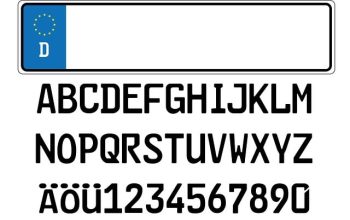Personalized car stickers and license plate decals have become a popular way to express individuality and brand identity on vehicles. Beyond aesthetics, these decals serve functional purposes, such as providing essential vehicle identification information. When choosing and applying them, it’s crucial to balance style with compliance, ensuring they don’t obstruct visibility or violate local regulations. This article explores the legal aspects of personalized car stickers, different types of license plate decals, auto tags and titles, sticker expiration dates, vehicle registration fees, replacement tags, and optimal placement for a stylish and compliant look.
- Understanding Personalized Car Stickers and Their Legal Aspects
- Types of License Plate Decals and Their Applications
- Auto Tags and Titles: A Comprehensive Guide to Vehicle Identification
- The Importance of Sticker Expiration Dates for Vehicle Compliance
- Navigating Vehicle Registration Fees and Their Relation to Decals
- When and How to Replace Vehicle Tags Effectively
- Ensuring Optimal Placement and Visibility of Car Decals
Understanding Personalized Car Stickers and Their Legal Aspects

Types of License Plate Decals and Their Applications

Auto Tags and Titles: A Comprehensive Guide to Vehicle Identification

The Importance of Sticker Expiration Dates for Vehicle Compliance

Personalized car stickers and license plate decals can be a fun way to express your style on the road. However, it’s crucial to remember that these additions also serve as official vehicle identification marks, tied to your auto tags and titles. Sticker expiration dates play a vital role in maintaining compliance with local regulations. These dates ensure that your vehicle registration remains valid and up-to-date, avoiding hefty fines associated with expired auto tags or inaccurate vehicle information.
Regularly checking and updating your decals, especially replacement tags for vehicles, is essential to prevent legal issues. Non-compliance can lead to not only financial penalties but also potential roadblocks in vehicle ownership transfer or sale. By staying current with sticker expiration dates, you ensure your vehicle remains legally registered, facilitating smooth navigation through traffic regulations and avoiding unnecessary stress.
Navigating Vehicle Registration Fees and Their Relation to Decals

When it comes to car decals and tags, one aspect often overlooked is their connection to vehicle registration fees. Personalized car stickers, including license plate decals and auto tags, play a role in the overall registration process. In many regions, registering a vehicle involves acquiring the necessary tags or stickers that display specific information, such as ownership details and expiration dates. These stickers are not merely for aesthetic purposes but serve as crucial identifiers on your vehicle’s license plate, making them indispensable for legal operation on public roads.
The relation between decals and registration fees is direct; certain types of personalized car stickers may incur additional costs or require specific adherence to local regulations. For instance, while standard license plate tags are included in the initial registration fee, unique or custom designs might have extra charges or require renewal at different intervals, reflected in sticker expiration dates. Additionally, replacement tags for vehicles that have been damaged or lost can also contribute to these fees. Understanding these dynamics ensures not only a stylish vehicle but also compliance with regulations, avoiding potential penalties associated with unauthorized or expired decals.
When and How to Replace Vehicle Tags Effectively

When it comes to replacing vehicle tags, timing is crucial. License plate decals and auto tags are typically valid for a specific period, often tied to your vehicle’s registration. Staying on top of sticker expiration dates is essential; failing to renew on time can result in fines and legal issues. Regularly check the date printed on your current tags and plan ahead to avoid any disruptions during driving.
The process of obtaining replacement tags is straightforward but requires attention to detail. Visit your local Department of Motor Vehicles (DMV) or relevant authority, ensuring you have all necessary documents, such as proof of ownership and current registration. There might be a fee associated with replacing auto tags and titles, so be prepared accordingly. Once approved, new license plate decals will be issued, allowing you to display them on your vehicle, maintaining both its personalization through personalized car stickers and compliance with local regulations.
Ensuring Optimal Placement and Visibility of Car Decals

When adorning your vehicle with decals or tags, placement is key. Optimal visibility ensures that your personalized car stickers or auto tags and titles serve their intended purposes effectively. Position them in areas where they’re easily seen by others but don’t hinder driver or passenger visibility. Avoid blocking license plate areas or the rear window unless it’s for a specific decorative purpose. Remember, clear lines of sight are crucial for safety, especially during night driving conditions.
Additionally, consider the size and contrast of the stickers. Larger decals with high-contrast colors ensure they stand out, making them easier to read, particularly from a distance or when viewed quickly. Some regions may have regulations on sticker placement, so it’s essential to check local guidelines regarding license plate decals and vehicle registration fees. Ensure you replace any damaged or expired stickers promptly, as sticker expiration dates can be enforced by authorities, resulting in penalties for non-compliance, especially when dealing with replacement tags for vehicles.



